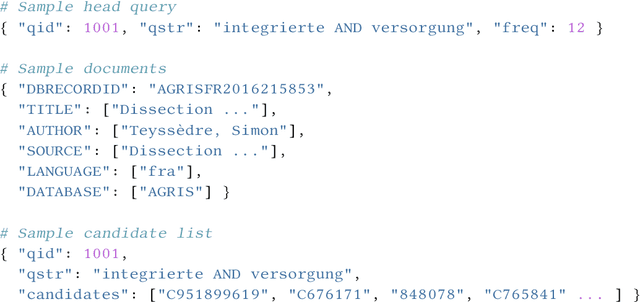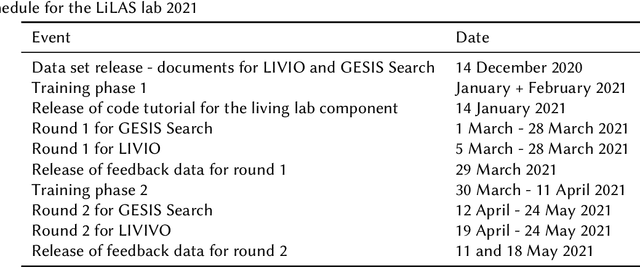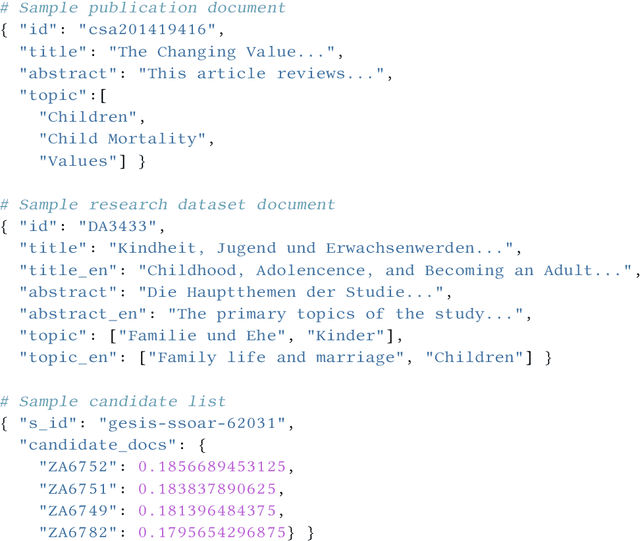Narges Tavakolpoursaleh
Online Information Retrieval Evaluation using the STELLA Framework
Oct 24, 2022
Abstract:Involving users in early phases of software development has become a common strategy as it enables developers to consider user needs from the beginning. Once a system is in production, new opportunities to observe, evaluate and learn from users emerge as more information becomes available. Gathering information from users to continuously evaluate their behavior is a common practice for commercial software, while the Cranfield paradigm remains the preferred option for Information Retrieval (IR) and recommendation systems in the academic world. Here we introduce the Infrastructures for Living Labs STELLA project which aims to create an evaluation infrastructure allowing experimental systems to run along production web-based academic search systems with real users. STELLA combines user interactions and log files analyses to enable large-scale A/B experiments for academic search.
* arXiv admin note: text overlap with arXiv:2203.05430
Overview of LiLAS 2021 -- Living Labs for Academic Search
Mar 10, 2022



Abstract:The Living Labs for Academic Search (LiLAS) lab aims to strengthen the concept of user-centric living labs for academic search. The methodological gap between real-world and lab-based evaluation should be bridged by allowing lab participants to evaluate their retrieval approaches in two real-world academic search systems from life sciences and social sciences. This overview paper outlines the two academic search systems LIVIVO and GESIS Search, and their corresponding tasks within LiLAS, which are ad-hoc retrieval and dataset recommendation. The lab is based on a new evaluation infrastructure named STELLA that allows participants to submit results corresponding to their experimental systems in the form of pre-computed runs and Docker containers that can be integrated into production systems and generate experimental results in real-time. Both submission types are interleaved with the results provided by the productive systems allowing for a seamless presentation and evaluation. The evaluation of results and a meta-analysis of the different tasks and submission types complement this overview.
 Add to Chrome
Add to Chrome Add to Firefox
Add to Firefox Add to Edge
Add to Edge